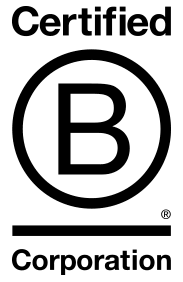Paul Hargreaves: Being a servant leader
We often have an idea in our heads of a leader as someone who is pushing themselves to the front, telling people what to do and perhaps a little pompous. Looking back at the great leaders in history, they were often the opposite of this and remarkably humble people who for a large part of the time stayed in the background. They put others before themselves.
I am now recording each week the same theme as this written blog as a short video for social media, and last week’s thoughts on competition caused some disagreement. Some people saw their own characteristic of competitiveness as a positive thing, and to some extent it is, but not if it involves riding rough-shod over others in your desire to be the best! Those who exhibit humility and grace will be looked upon favourably by others and I would suggest that it is better to focus on being humble than being a winner.
The desire to be looked up to by other people often comes from insecurity and fear of failure. Those leaders who are confident that they are doing what they are called to do need not impress others, and sometimes may do unpopular things if they know what they are doing is right. I have recently read the autobiography of Martin Luther King. What a true example of leadership and standing for what is right, often with great personal sacrifice and many days spent in prison. We know that he ultimately paid the absolute sacrifice of his life. Interestingly to me, he was killed when his main campaign was against poverty rather than racism.
We have huge injustices of poverty building up in this country and many other westernised countries with the gap between rich and poor growing wider every day. (Did you know that 42 people in the world own half the world’s finances?) If we are doing the right thing in our businesses we must ensure that we pay fairly and not have the directors paid silly multiples of wages compared to the lowest paid workers. Apart from anything else, this causes resentment, unproductivity and it is simply bad business. Some of these ridiculous remuneration decisions comes from insecurity too. Often those that do this have come from poor backgrounds themselves and are paranoid about not having money with extreme consequences. I was very encouraged to see a photo of Sadio Mane (Liverpool player) walking around with a broken I-phone and discovered this quote from him:
“Why would I want ten Ferraris, 20 diamond watches and two jet planes? What would that do for the world? I starved, I worked in the fields, I played barefoot, and I didn't go to school. Now I can help people. I prefer to build schools and give poor people food or clothing. I have built schools [and] a stadium; we provide clothes, shoes, and food for people in extreme poverty. In addition, I give 70 euros per month to all people from a very poor Senegalese region in order to contribute to their family economy. I do not need to display luxury cars, luxury homes, trips, and even planes. I prefer that my people receive a little of what life has given me,"
That is leadership.











